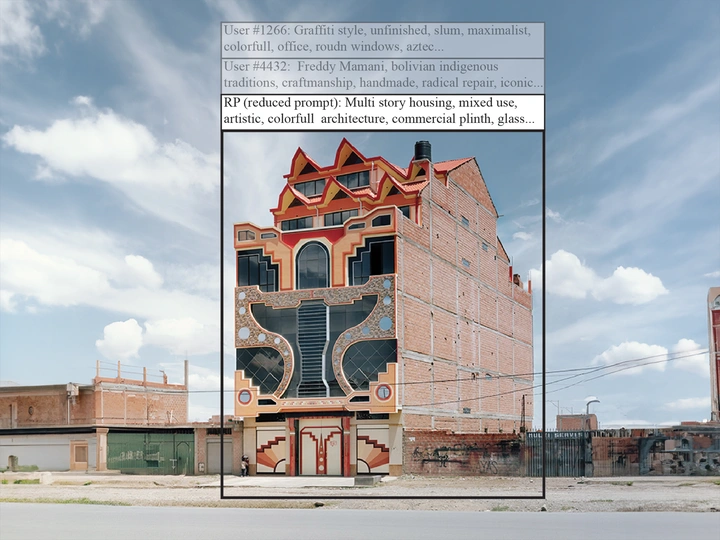AI Datasets: Crowdsourcing for Equity

Cas Esbach
We are Sandra Baggerman and Cas Esbach, architects involved in exploring the intersection of technology and architectural design processes. Our work is informed by our experience in leading architectural firms and our academic endeavors.
Cas Esbach currently leads projects at MVRDV, having previously worked at BIG, Civic Projects Chicago, and derksen|windt. His work includes large-scale complex designs such as the Shenzhen Terraces, Valley, and Tripolis at MVRDV. He is vocal in the architectural community, as a tutor at the TU Delft, and contributing to the discourse on technology in architecture through panels at Salone del Mobile, Syracuse University, and guest lectures at TU Delft and the University of Colorado Boulder, and articles for publications such as Architects Journal, Building Design, and Parametric Architecture.
Sandra Baggerman is currently with Trahan Architects, prior she has worked at MVRDV and BIG where she worked on The Hills, Kavel 3, and Sax at MVRDV, and Ø4H with BIG. She is a contributor to notable publications such as DATAPOLIS and Future[tectonics] and has been a tutor at the Bsc graduation studio of BK at TU Delft. She is passionate about researching AI Architectural Diversity and 'Ecosophic Contextualism'—an approach to leverage ecosystems for societal advancement. Valuing well composed honest design, she strives for a research-driven, holistic approach harmonizing architecture and society.
Together, Sandra and Cas are at the forefront of integrating emerging technologies into architecture to tackle significant global issues. Their current projects include developing workshops and a summer school that address challenges like China’s unfinished building crisis and the creation of culturally inclusive datasets. Their collaboration is dedicated to pioneering collaborative methods that not only enhance architectural practices but also promote societal advancement through designs that are ecologically and culturally sensitive.
Our initiative, 'AI Architectural Diversity: Crowdsourcing for Equity,' aims to democratize AI within the built environment by developing a diverse, globally sourced image database. This project addresses bias in machine-generated architectural imagery, often due to significant gaps in cultural representation and environmental context. With AI's inevitable integration into all facets of the built environment, it's crucial to shape this technology to serve a diverse global community, rather than perpetuating narrow, biased perspectives.
Most AI tools draw from opaque datasets with problematic inputs from copyright restrictions and hidden homogeneity, underscoring the need for transparent, diverse data sources.
Our project pioneers AI development with equity at its core, aiming to establish a crowdsourcing platform that gathers architectural images from diverse global communities, integrating a broad spectrum of perspectives, styles, settings, and cultural contexts. This will enhance AI’s ability to draw from transparent, unbiased datasets.
We actively engage the public, spatial thinkers, and specialists encouraging contributions that reflect their local spatial identities. This approach not only enriches the AI model but also empowers contributors by giving them a stake in the AI technologies shaping their environments.
Initial discussions with AI experts have highlighted data collection as a key challenge. Recent advances allow us to process large enough datasets to improve AI tool outputs significantly. Resourcing datasets globally lets spatial designers create ethically and contextually inclusive images that capture context, culture and historical consciousness.
Looking forward, our goal is to lead this initiative and join the global effort to refine AI capabilities and positively impact global architectural practices. This project represents the diverse current state of the built environment, ensuring AI development genuinely benefits the world.